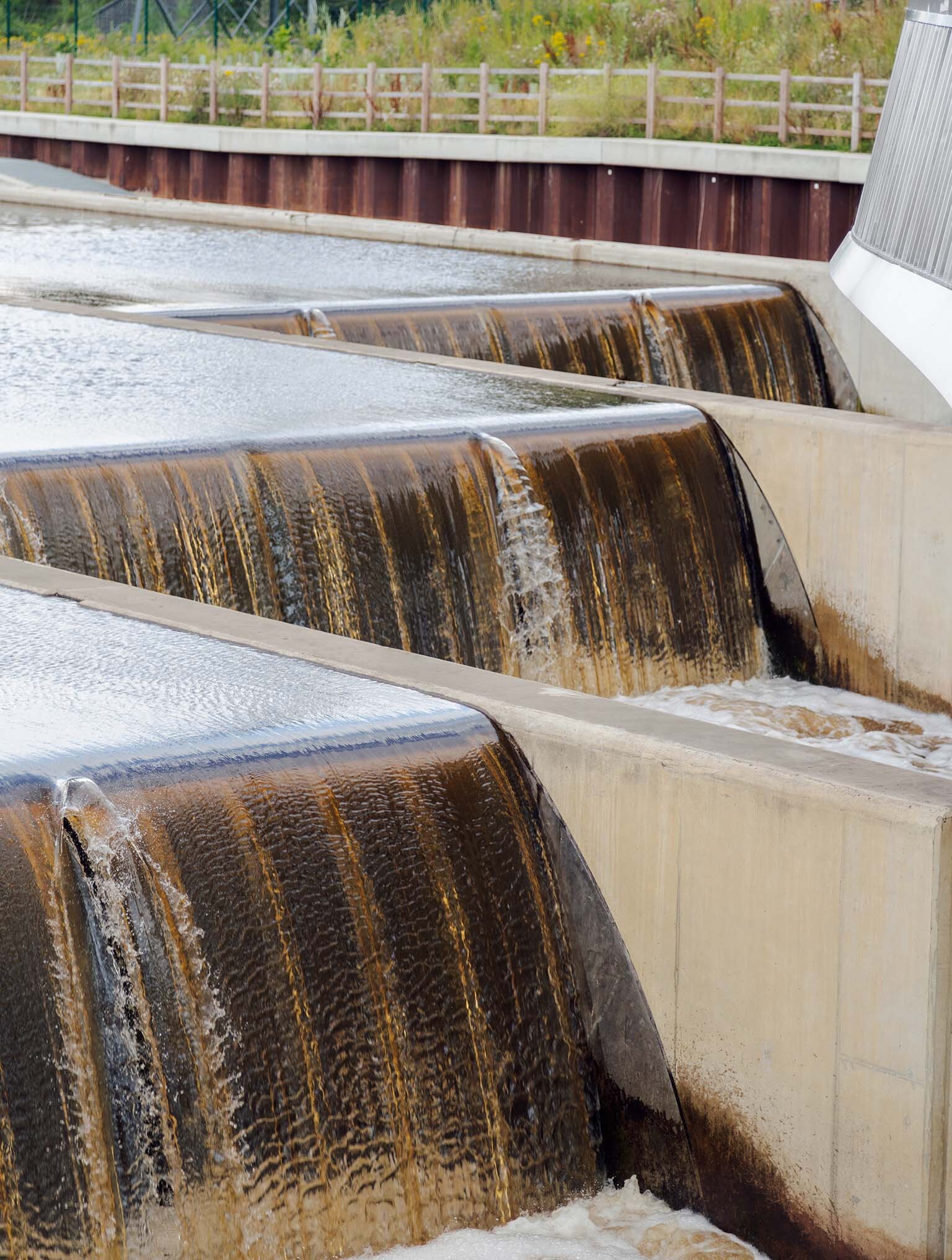Reducing wastewater COD levels at plastic recycling company
Recovering and recycling plastic is crucial for achieving sustainability goals – but the process creates its own environmental problems in the form of contaminated wastewater. DESOTEC’s Mobicon filters are ideal for purifying wastewater so that it meets legal requirements, enabling recycling plants to grow their business and keep plastic waste out of landfill.
The problem
An Italian client recovers and recycles plastic boxes, mainly from the food industry.
The washing and recycling processes result in wastewater that contains residues of food and cleaning agents. Before this wastewater can be sent off-site for further treatment, the level of these compounds must be reduced.
If left untreated, the COD concentrations in the wastewater from this plant are around 600 mg/L. The legal limit in the region is set at 500 mg/L. Due to the client’s strong commitment to environmental sustainability and corporate social responsibility, it has set itself an even lower COD limit of just 200 mg/L.
Until recently, the client was able to filter the pollutants from the wastewater itself using fixed carbon filters. However, in 2019, it increased its rate of production and found that its filters were unable to cope. COD levels were higher than expected, and the client wasn’t sure why.
Aware that the core expertise of the business was in recycling plastic, not purifying wastewater, the client called in the specialists at DESOTEC.


The solution
DESOTEC engineers first visited the site in July 2019 to help the client investigate why the existing filters were no longer working correctly.
They found that suspended solids in the water were clogging the carbon filters. This reduced their efficiency and made it harder to pump water over them.
Working closely with the client, DESOTEC designed a solution that involves a two-stage filtering process.
The client’s existing filter was converted to use sand, which filters out the suspended solids from the wastewater.
Next, a Mobicon filter was installed, which uses activated carbon technology to filter the water for a second time. This treats the remaining organic compounds to reduce COD levels.
As the Mobicon filter is supplied on a rental basis, there was no major investment required.
The Mobicon was in place within just a few weeks of DESOTEC’s first site visit, and the filter was exchanged for the first time at the end of August.
The results
This client is a model for other food packaging companies in the Italian market and beyond who wish to boost sustainability in their plastic recycling processes.
While this particular customer doesn’t have a huge problem with surfactants, other plants in the Italian plastic food packaging market do – and legal limits are strict, often as low as 10 mg/L. DESOTEC’s mobile filters can treat these surfactants successfully, too.
As the Mobicon filters are available to rent on a monthly basis, they require no major investment from clients.
Contact our experts
At DESOTEC, all our sales people are engineers. When working with new customers, we discuss their pain points to help them determine whether our solution is the right fit for their business. Contact us today to discuss your company’s purification needs.
Contact our expertsContact our experts
At DESOTEC, all our sales people are engineers. When working with new customers, we discuss their pain points to help them determine whether our solution is the right fit for their business. Contact us today to discuss your company’s purification needs.
Contact our experts-
Water & liquid purification
Our mobile filtration solutions purify wastewater and groundwater, and ensure process liquids reach high purity standards. -
Our unique service
Our closed-loop, full-service model is as unique as your business needs. We’ll define the right filtration setup and safely recycle filtration waste, making it easy to go green. -
Your sustainability journey
We care about protecting our air, water and soil for future generations, just like you. Our filtration solutions help you meet environmental standards, reducing your carbon footprint.


